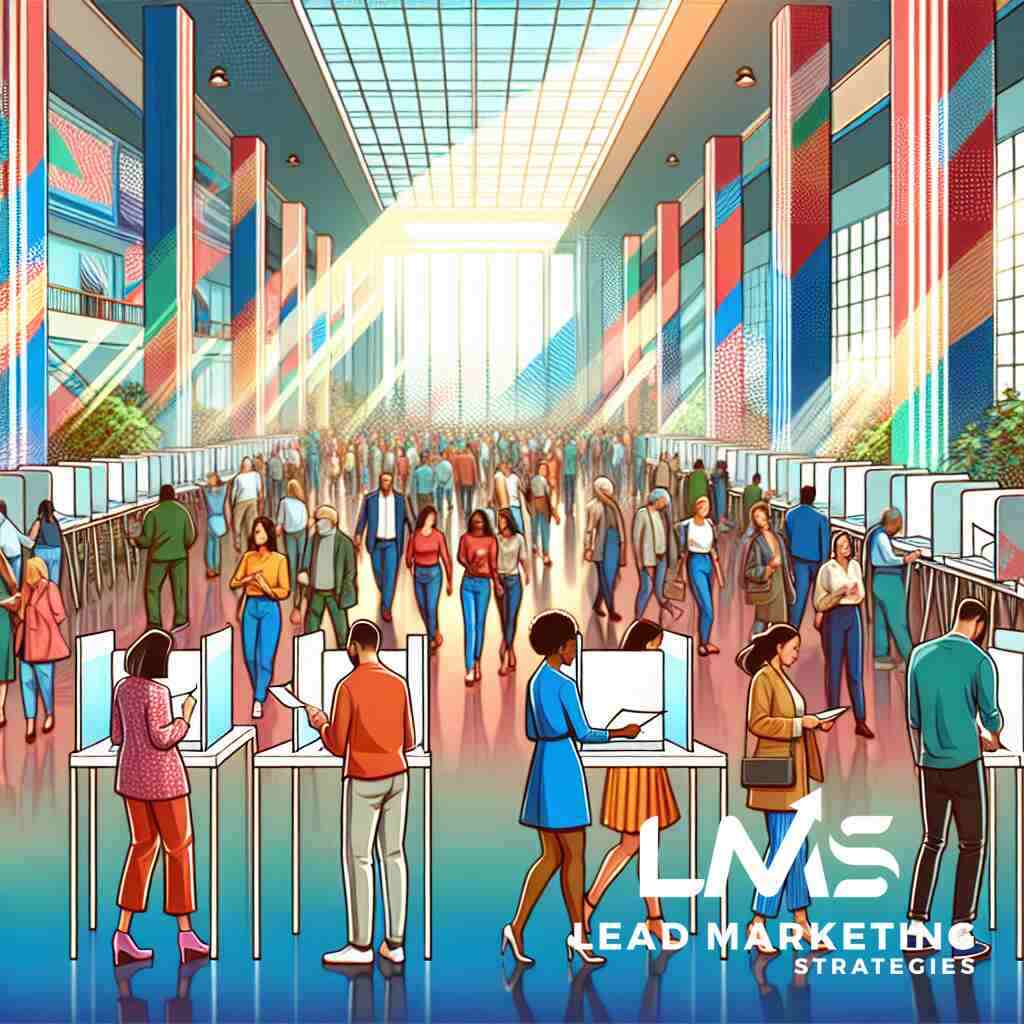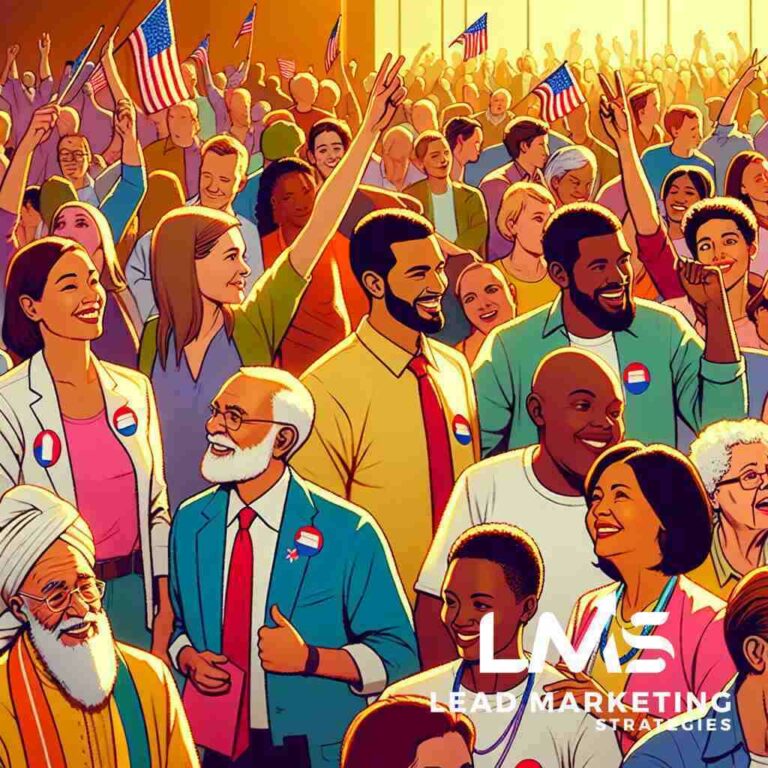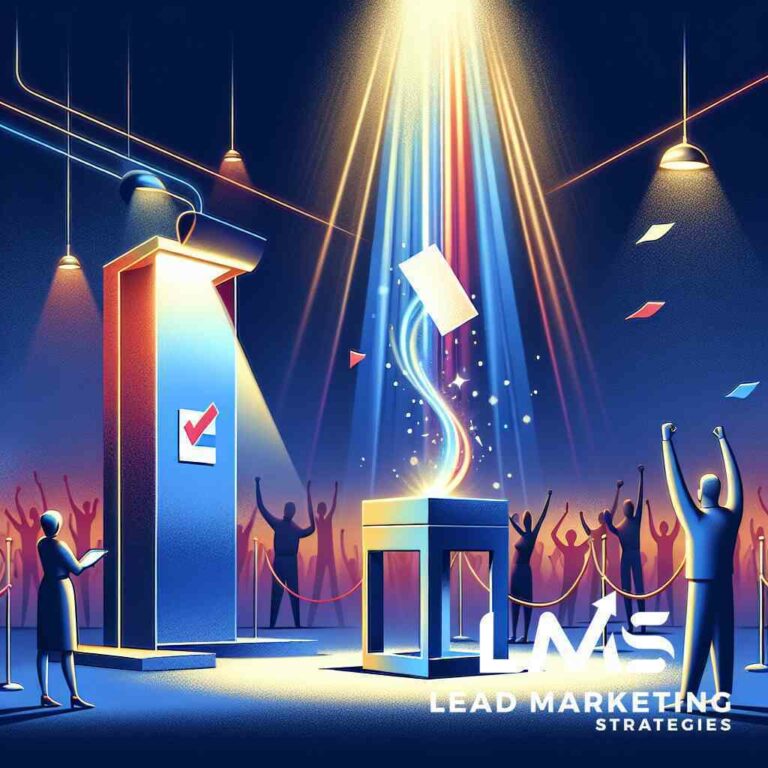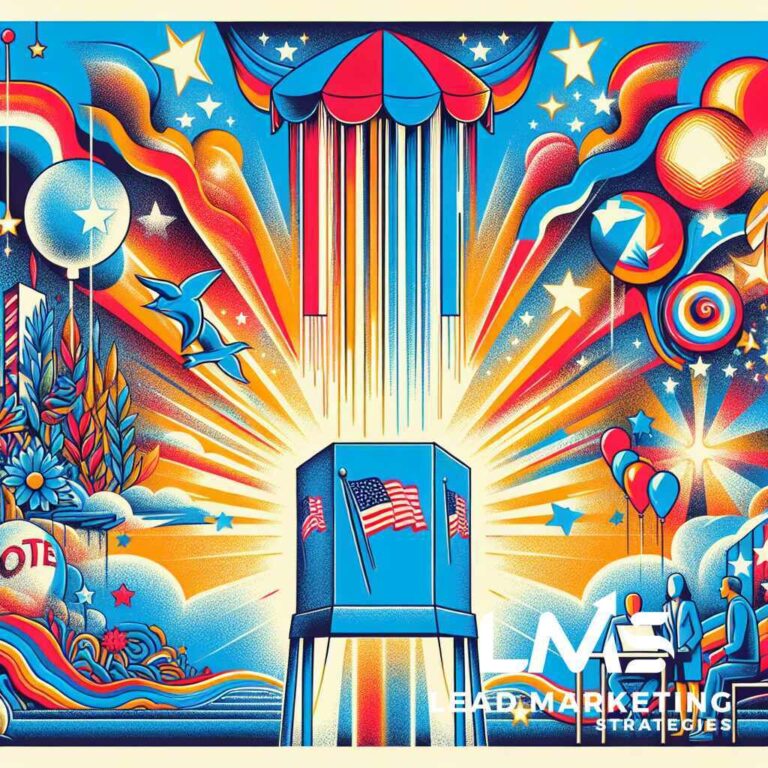Visionary Prelude: The Road to 2025
Setting the Stage for Future Political Narratives
As we approach the year 2025, the realm of political marketing is poised for a transformation of unprecedented proportions. The ever-changing nature of media landscapes demands that campaign narratives evolve in tandem with technological advancements. Political parties and candidates will need to hone their messaging to resonate with diverse voter segments, ensuring they remain relevant and engaging. Understanding political campaigns will be paramount in this evolving landscape, as it sets the foundation for impactful and adaptive narratives.
The successful political marketing campaigns in the future will hinge on a candidate’s ability to craft authentic stories that connect with their audience on a personal level. As voter expectations shift, political marketing strategies must integrate emotional intelligence and cultural awareness to drive voter engagement. The road ahead requires political players not just to react but to anticipate trends, fostering narratives that capture the complexities of contemporary issues.
Technological Revolution in Campaign Dynamics
The technological revolution is redefining the dynamics of political campaigns. Innovations in artificial intelligence, data analytics, and digital platforms are transforming voter engagement, offering political marketers new avenues to connect with constituents. As these technologies evolve, they continue to shape campaign strategies, enabling faster, more innovative, and more efficient approaches to electoral success.
The integration of AI in political marketing brings about greater precision in reaching target demographics, personalizing messaging, and understanding voter behavior through predictive analytics. By utilizing advanced tools, political entities can streamline operations, making decisions based on real-time data and insights. These advancements are not merely changes; they represent a paradigm shift in how campaigns are executed, allowing for greater creativity and responsiveness.
The Evolving Digital Landscape: A New Arena for Political Engagement
The digital landscape is rapidly evolving, presenting a new arena for political engagement. Social media platforms, online forums, and digital communities have reshaped the way political campaigns interact with voters. In this new age, the traditional boundaries between politicians and constituents are dissolving, giving rise to more direct and interactive forms of communication.
Candidates must adapt to this changing environment by integrating digital strategies that are both innovative and effective. Social media has become a core component of political campaigns’ outreach, enabling immediate feedback and engagement. By leveraging these platforms, political campaigns can foster community and dialogue, ensuring their message reaches broader audiences. The challenge lies in crafting strategies that harness the full potential of digital tools while maintaining authentic connections with voters.
Political Marketing Metamorphosis: Where Innovation Meets Strategy
AI-Driven Political Insights: Shaping Tomorrow’s Discourse
Artificial intelligence is at the forefront of AI in political marketing, redefining how political insights are gathered and utilized. Political campaigns can leverage AI-driven analytics to comprehend voter behavior and preferences with unprecedented accuracy. By analyzing vast datasets, AI tools identify patterns and trends, enabling the crafting of messages that resonate deeply with target audiences. This technological advance allows campaigns to predict electoral outcomes and adapt strategies dynamically, ensuring they stay ahead of the curve in the rapidly evolving political marketing landscape. As political narratives continue to evolve, AI plays a pivotal role in shaping discourse that is both relevant and impactful.
AI technology also empowers political marketers to employ hyper-focused strategies that maximize voter connection. This leads to more efficient allocation of resources and targeted efforts that yield higher engagement rates. As the political marketing landscape evolves, AI-driven insights offer a competitive edge, enabling campaigns to cultivate trust and authenticity in their messaging, which is crucial for winning voter support in 2025.
Micro-Targeting Precision: Personalizing the Voter Connection
Micro-targeting has emerged as a crucial component in political marketing, enabling campaigners to tailor their approaches to specific voter segments. By utilizing data analytics, campaigns can craft personalized messages that address the distinct concerns and interests of various demographics. This level of precision ensures that political messages resonate more profoundly, fostering a sense of direct connection with individual voters.
In 2025, the capacity for micro-targeting will be amplified by advances in data collection and processing technologies. Campaigns can leverage these tools to segment voter bases with greater granularity, allowing for highly individualized outreach strategies. This precision in targeting not only boosts engagement but also enhances the effectiveness of political marketing services, ensuring campaigns can harness the full potential of their voter outreach efforts.
Moreover, micro-targeting supports the development of tailored marketing strategies that align voter interests with campaign goals. As political marketing strategies continue to advance, the ability to connect with voters on a personal level becomes an indispensable asset for electoral success.
Blockchain and Voting Security: Safeguarding Democracy in the Digital Age
Blockchain technology is revolutionizing the concept of voting security, providing a robust safeguard for electoral processes in the digital age. Its decentralized and transparent nature ensures that votes are cast and counted with integrity, minimizing the risk of tampering or fraud.
As digital threats continue to evolve, incorporating blockchain into voting systems provides a formidable line of defense in preserving democratic integrity. By enabling secure, verifiable, and auditable voting mechanisms, blockchain technology enhances voter confidence and participation.
Incorporating blockchain into electoral processes also streamlines operations by reducing reliance on centralized authorities and eliminating redundancies. As a result, election outcomes can be validated more swiftly and reliably, providing a foundation for trust in the democratic process.
Blockchain is not solely about security; it also paves the way for innovative electoral practices that can modernize the voting experience. In this digital age, safeguarding democracy through technology is not just a priority but a necessity.
Augmented Reality and Immersive Campaigns: Engaging Voter Segments in 2025
The rise of augmented reality (AR) has introduced new dimensions to political marketing, making campaigns more interactive and engaging for voters. AR allows political entities to create immersive experiences that bring campaign messages to life in vivid detail, transforming the way constituents interact with political content.
By integrating AR into campaign strategies, political marketers can convey complex issues through compelling visual narratives that captivate and inform. This approach ensures deeper engagement by making political content more relatable and accessible, particularly for younger, tech-savvy demographics.
As political marketers continue to explore innovative campaign strategies, AR emerges as a powerful tool for enhancing voter outreach and engagement. The ability to create dynamic, interactive experiences offers a competitive edge in capturing the attention of diverse voter segments.
Moreover, AR provides a platform for personalized storytelling, facilitating stronger connections with voters. This technology underscores the importance of engaging voter segments in 2025, providing a glimpse into a future where immersive campaigns redefine political marketing.
Intelligent Campaign Automation: Streamlining Electoral Processes through Technology
Intelligent campaign automation represents a leap forward in the efficiency of electoral processes. By utilizing advanced software tools to automate routine tasks, political campaigns can optimize their operations and focus on strategic decision-making.
Automation streamlines various aspects of campaign management, from data collection to communication scheduling, enabling campaigns to deploy resources more effectively. The rise of innovative technology allows political marketers to harness real-time data, quickly adapt to changing circumstances, and make informed decisions that can significantly impact electoral outcomes.
The efficiency provided by automated systems ensures campaigns run smoothly, minimizing human error and enhancing performance. By adopting smart campaign automation, political entities can achieve greater precision in targeting and engagement efforts, maximizing their chances of success.
As political marketing tips continue to evolve, integrating automation into campaign strategies becomes essential for maintaining a competitive edge. Embracing these advanced tools signifies a commitment to innovation and electoral success in 2025.
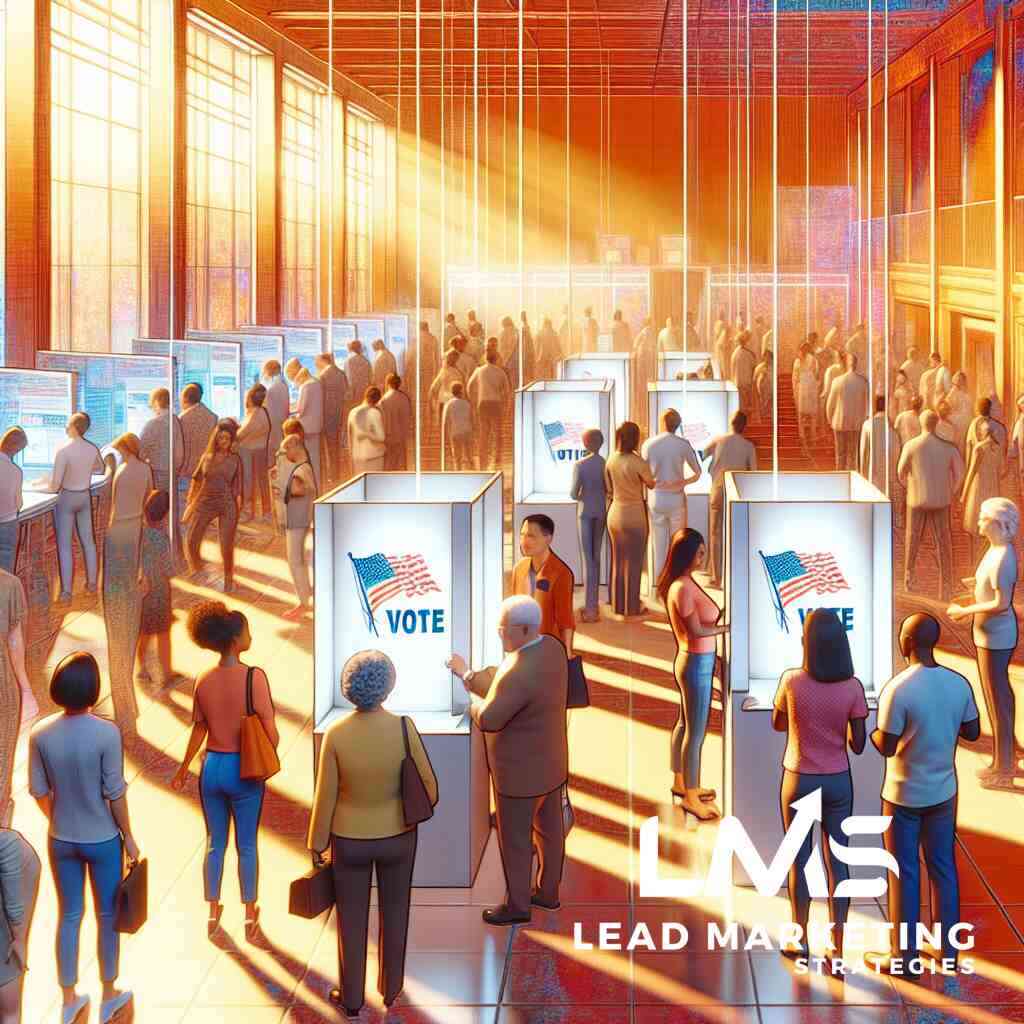
Crossing the Digital Frontier: Engaging the Electorate Through Advanced Techniques
Virtual Campaign Events: Embracing the Future of Political Encounters
Virtual campaign events are rapidly becoming essential tools for political engagement in 2025. With the global reach of digital platforms, these events transcend geographical barriers, allowing candidates to connect with a broader audience. Virtual town halls, rallies, and debates offer interactive experiences that can be tailored to diverse voter segments, enhancing participation and engagement. As political campaign strategies evolve, embracing virtual events becomes critical for campaigns seeking to leverage this expansive digital presence.
The immersive nature of virtual events offers an effective means to convey complex political messages. By using high-quality streaming and interactive chat functions, candidates can engage in real-time conversations with their constituents, fostering a sense of community and immediacy. This digital engagement expands the traditional format of campaign events, providing a convenient and inclusive way for voters to connect with political figures.
Social Media Integration: Reimagining Voter Interaction in 2025
Social media platforms continue to play a pivotal role in political marketing, offering unprecedented avenues for voter interaction and outreach. Integrating these platforms into campaign strategies enables direct communication between candidates and voters, promoting transparency and facilitating immediate feedback. As candidates craft their messages, social media for political campaigns is indispensable in ensuring these narratives reach and resonate with target audiences.
The dynamic nature of social media facilitates the spread of viral content, amplifying political messages and engaging broader voter segments. Candidates in 2025 must harness the power of these platforms to tailor their communication strategies, enabling them to address voter concerns quickly and effectively. Through strategic social media integration, campaigns can build a loyal following and influence public discourse, reinforcing the importance of digital engagement in modern politics.
Data-Driven Strategies: Analytics-Driven Decision Making for Electoral Success
In an era where data is king, leveraging analytics-driven strategies provides a competitive advantage in political campaigns. Utilizing voter data enables campaigns to refine their strategy and optimize resource allocation, ensuring that messages are targeted to the most relevant segments. Precision in data analysis enables a more tailored approach, leading to increased voter engagement and improved electoral outcomes.
Campaigns can utilize tools like voter data analysis to assess sentiment and adapt strategies dynamically. By leveraging these insights, political campaigns can anticipate voter behavior and adjust messaging in real-time. Data-driven strategies not only enhance decision-making but also sharpen the focus of political outreach, leading to more effective engagements and a stronger voter base.
Interactive Political Content: Engaging the Modern Voter
Interactive political content is reshaping the way campaigns engage with voters, providing immersive experiences that foster deeper connections with target audiences. By incorporating elements such as polls, quizzes, and interactive infographics, political campaigns can convey information in an engaging and digestible manner. This innovative approach ensures that political messages resonate with an increasingly digital-savvy electorate.
Augmented reality in political advertising offers a glimpse into future-forward campaign techniques that captivate audiences, bringing policy discussions to life. As voters seek more personalized and engaging content, creating interactive narratives becomes crucial for capturing their attention and interest. This approach not only drives engagement but also facilitates understanding and acceptance of complex political issues, paving the way for electoral success.
Real-Time Voter Feedback: Refining Campaign Strategy through Direct Insight
The ability to obtain real-time voter feedback is revolutionizing how political campaigns adapt and refine their strategies. By actively seeking insights from constituents, campaigns can respond promptly to voter concerns, ensuring their messaging remains relevant and impactful. Review of Political Marketing Strategies Near Me Platforms that facilitate real-time interaction, such as live polls and comment threads, provide valuable data that can be used to adjust campaign tactics on the fly.
Gathering voter feedback in real-time enables campaigns to remain agile, addressing emerging issues and responding to shifting public sentiment. This direct connection with the electorate fosters a transparent dialogue, enhancing trust and credibility. Through adopting real-time feedback mechanisms, political campaigns can better navigate the complexities of the political landscape, aligning their strategies with voter priorities and ensuring success in 2025.
Pioneering the Future: Strategic Imperatives for Political Marketing Success
Crafting a Responsive Campaign Message: Adapting to an Evolving Political Landscape
In the fast-paced political and digital landscape of 2025, crafting a responsive campaign message becomes a vital skill for electoral success. Political campaigns must remain vigilant in adapting their narratives to meet the evolving expectations of voters. A well-crafted message considers the current socio-political context, ensuring relevance and resonance with diverse voter segments. By staying attuned to emerging trends and societal shifts, campaigns can refine their messaging strategies to align with voter priorities and aspirations.
The ability to adapt quickly fosters a sense of authenticity and responsiveness that resonates deeply with constituents. By blending traditional techniques with state-of-the-art digital tools, campaigns can achieve a nuanced approach to candidate messaging for 2025 that not only engages but also inspires action.
Influencer Partnerships: Leveraging Authentic Voices in Political Outreach
In 2025, building strategic partnerships with influencers can significantly enhance a campaign’s outreach efforts. These collaborations leverage the influencers’ existing platforms and credibility to amplify campaign messages. By partnering with figures who resonate with key demographics, political campaigns can extend their reach and connect with voters on a more personal level.
Influencers provide authentic narratives that can be more relatable than traditional political endorsements. This authenticity helps bridge the gap between politicians and the electorate, fostering trust and credibility. As campaigns strive for effective political marketing solutions, these partnerships prove invaluable in reaching audiences that might otherwise remain disengaged.
Digital Grassroots Movements: Mobilizing the Online Sphere for Offline Victory
Digital grassroots movements are reshaping the political landscape, offering powerful tools for mobilizing support both online and offline. These movements harness the energy of social engagement to galvanize voter participation and advocacy. Utilizing digital platforms, campaigns can inspire action and foster community-driven initiatives that have tangible impacts on election outcomes.
By amplifying grassroots efforts through digital channels, campaigns can extend their reach and influence beyond traditional boundaries. The fusion of online activism with physical participation exemplifies the potential of these movements to drive real change, ensuring campaigns remain agile and impactful in an increasingly digital world.
Campaign Finance Innovations: Navigating the Complexities of Secure Online Fundraising
Navigating the complexities of campaign finance requires embracing innovations that secure online fundraising efforts. In 2025, utilizing cutting-edge technological solutions is paramount for ensuring transparency and efficiency in campaign finance management. These innovations streamline the fundraising process, allowing campaigns to reach a broader donor base via digital platforms.
Secure online fundraising mechanisms not only boost financial resources but also foster a sense of trust among supporters. By integrating secure, user-friendly systems, campaigns can effectively manage contributions, ensuring compliance with regulatory standards and enhancing donor confidence. As political campaign finance becomes more intricate, embracing these innovations is essential for success.
Hybrid Election Strategies: Merging Traditional and Digital Campaign Tactics
Hybrid election strategies represent the future of political campaigning, merging traditional methods with digital advancements. This combined approach maximizes outreach potential, blending in-person interactions with powerful online engagement techniques. By integrating both aspects, campaigns can leverage the strengths of each to create dynamic, multifaceted strategies that resonate with a wide range of voters.
The implementation of hybrid tactics ensures campaigns can adapt to diverse demographic needs and preferences, enhancing voter engagement and participation. Campaigns that embrace this dual strategy are better positioned to navigate the complexities of the political landscape, achieving success by harmonizing traditional values with modern innovations.
Reflective Epilogue: Redefining Democracy in the Digital Epoch
Synthesizing Innovation with Political Integrity
The integration of technology and politics is not without its challenges, especially as we approach 2025. As digital advancements accelerate, it becomes essential to balance innovation with political integrity. Political marketing strategies must evolve to maintain trust and transparency, ensuring that technological tools are used ethically and effectively. Upholding integrity in political campaigns is critical, especially when technologies like AI and blockchain are being integrated into electoral processes.
Political marketing strategies must prioritize responsible use of data analytics, ensuring transparency about how voter data is collected and used. Voter trust hinges on ethical practices and the maintenance of their privacy. Additionally, the rise of virtual political events and digital campaign techniques means political campaigns must be vigilant against digital misinformation and manipulation. By synthesizing innovation with integrity, political entities can establish a solid foundation for a more informed and ethical approach to political marketing.
Looking Beyond 2025: Future-Forward Strategies for Continued Political Evolution
As we look beyond 2025, the political landscape is expected to continue transforming. The future demands strategic foresight and adaptability. Campaigns must evolve with emerging technologies to ensure they remain competitive and relevant. Investing in ongoing technological education and embracing future-forward strategies will be crucial for continued political evolution.
Political marketers should employ cutting-edge innovations to foster deeper voter engagement and advocacy. Whether through harnessing the potential of augmented reality or developing sophisticated AI-based analytics, the goal is to stay ahead of the curve. Understanding the nuances of tools such as political campaign video strategies will also be integral in crafting resonant and impactful narratives.
Ultimately, the future of political marketing lies in the hands of those willing to push boundaries while staying true to democratic principles. By merging innovation with authenticity, political leaders can navigate the challenges of this digital epoch and usher in a new era of informed, engaged, and empowered electorates.
Frequently Asked Questions
Question: How will AI in political campaigns transform voter engagement in 2025?
Answer: AI in political campaigns is set to revolutionize voter engagement by providing deep insights into voter behavior and preferences. Through advanced data analytics, AI enables precision targeting, allowing campaigns to personalize messaging like never before. This means engaging voter segments in 2025 with tailored content that resonates more deeply with them. At Political Marketing Strategies, we utilize AI-driven voter analysis to craft compelling narratives and establish a robust voter base, providing a cutting-edge advantage to your political campaign efforts.
Question: How can blockchain technology enhance voting security and trust in the electoral process?
Answer: Blockchain voting security significantly enhances the integrity and transparency of the electoral process. By decentralizing the voting mechanism, it ensures that each vote is secure, verifiable, and tamper-proof. This not only boosts voter confidence but also encourages higher participation. Political Marketing Strategies is at the forefront of integrating such technologies into campaign strategies, ensuring our clients can offer a secure and trustworthy voting process.
Question: In the blog ‘Understanding the Future of Political Marketing in 2025’, what strategies are recommended for effective social media integration?
Answer: Social media integration 2025 focuses on direct and dynamic communications with voters. Using platforms like Twitter, Facebook, and Instagram, campaigns can foster real-time interaction and receive immediate feedback. The blog highlights the importance of crafting engaging political content that resonates with digital-savvy electorates. At Political Marketing Strategies, our political marketing services include advanced social media campaigning techniques that leverage these platforms for maximum outreach and engagement, ensuring your message reaches and resonates with your target audience.
Question: What role do virtual campaign events play in modern political marketing strategies?
Answer: Virtual campaign events transcend geographical barriers, allowing broader voter engagement. By hosting virtual town halls, debates, and rallies, campaigns can connect with a wider audience, fostering community and direct interaction. Political Marketing Strategies excels in organizing these virtual events, employing innovative digital campaigning techniques to make them engaging and impactful, thereby significantly expanding your campaign’s reach.
Question: How can Political Marketing Strategies assist in developing a hybrid election strategy for 2025?
Answer: A hybrid election strategy combines traditional campaigning methods with cutting-edge digital innovations. Political Marketing Strategies excels in this dual approach, creating multifaceted strategies that enhance voter engagement through holistic outreach. With expertise in both grassroots campaign strategies and advanced digital tools, we ensure our clients can navigate the complexities of modern elections, maximizing their campaign’s effectiveness across multiple platforms.
